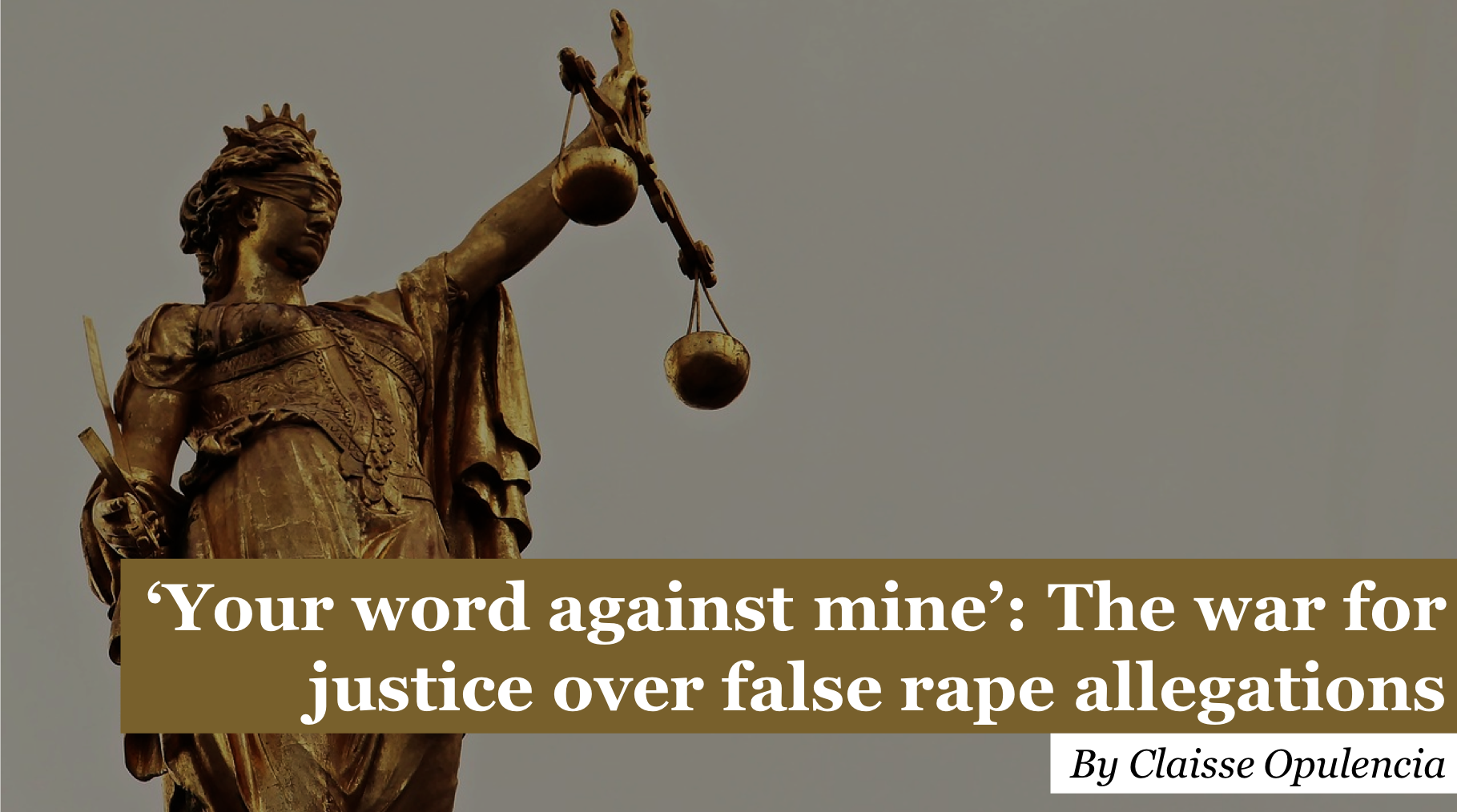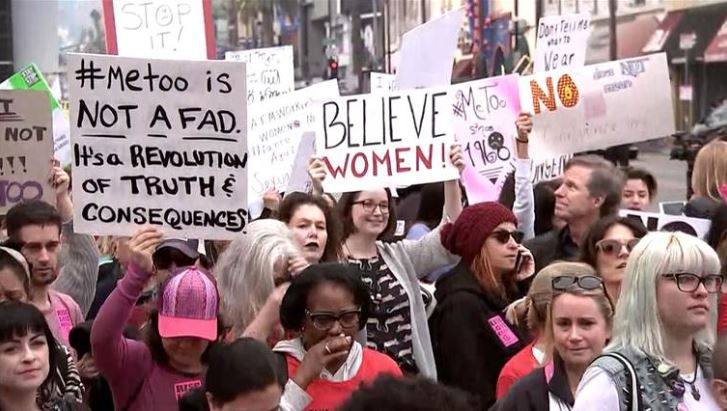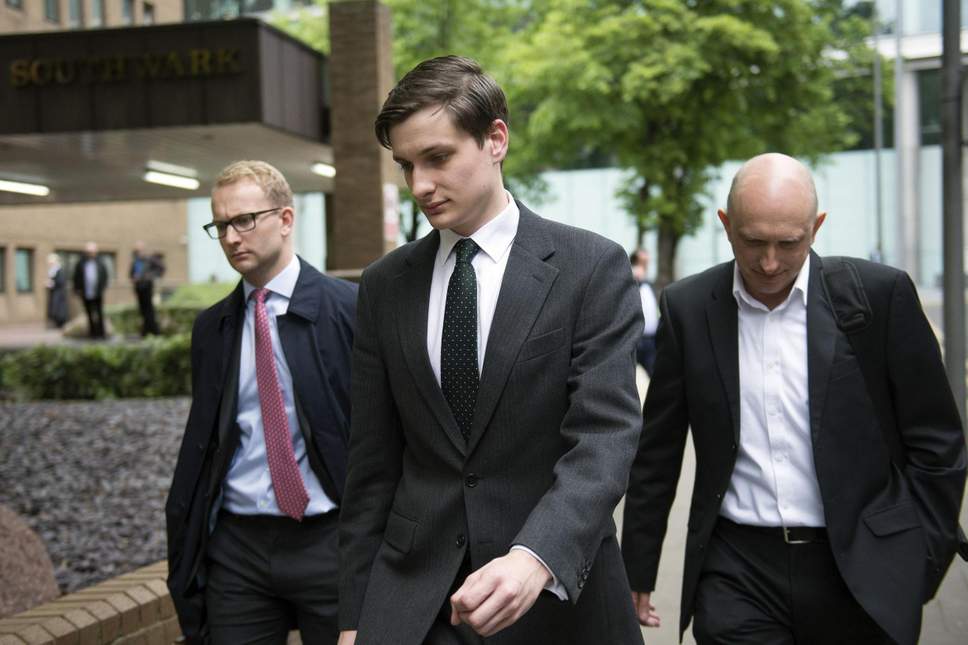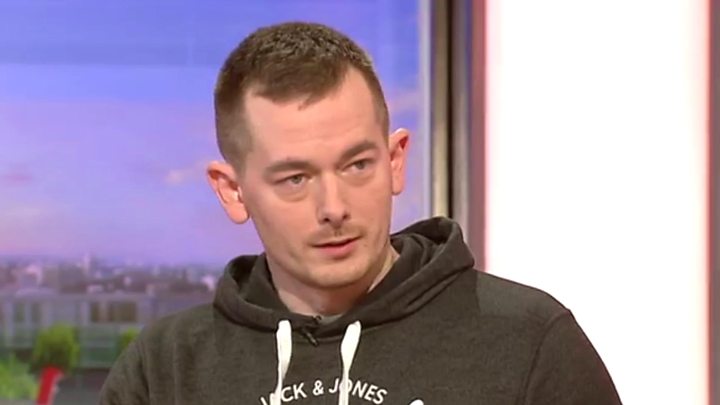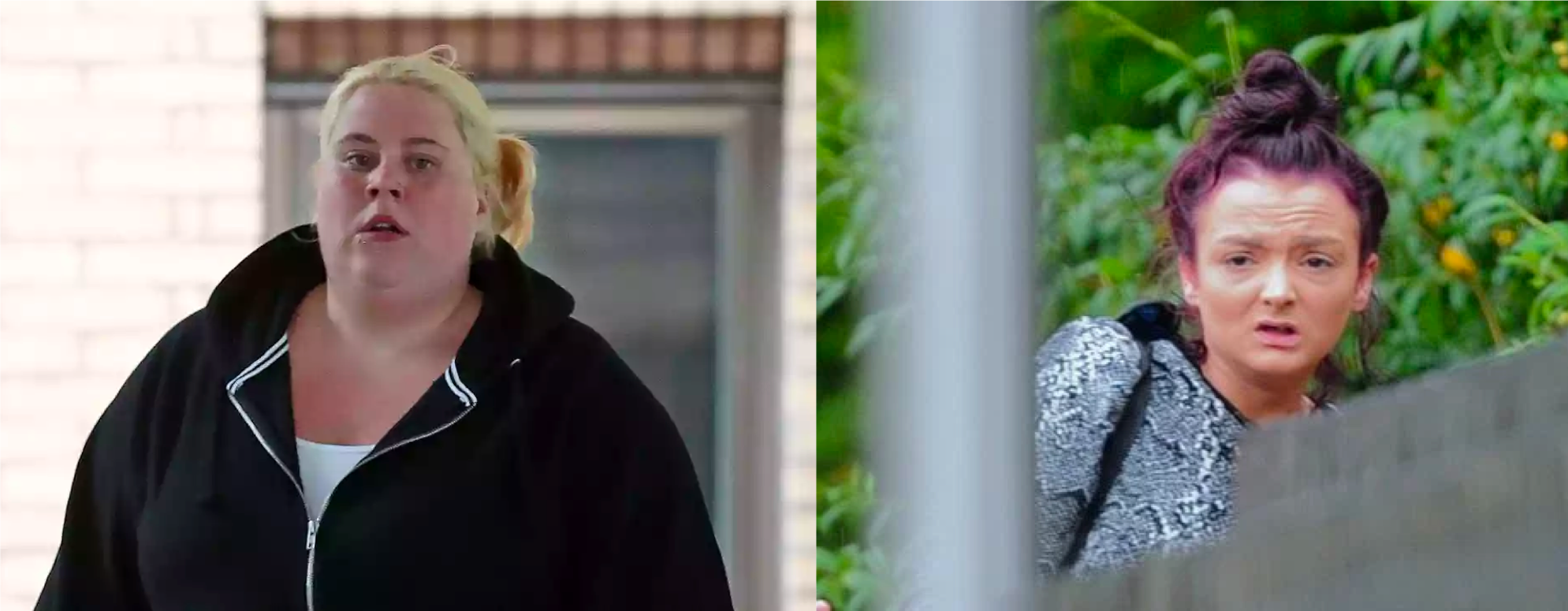It’s the autumn of 2015, mother-of-three Kelly Bowden had just finished getting her children ready for the start of a new school year. This is the time where most parents are excited about their children going back to school – but Kelly was fed up. Her 10-year-old son was still being bullied, despite her having complained to the school numerous times earlier in the year. Jordan told her that he was being picked on by his three friends from school. Jordan said that one of the boys threatened to ‘ruin his life’ for always losing their playground games. Kelly complained to the school one last time.
Kelly thought that the bullying had stopped. Although, she noticed a change in Jordan’s attitude. He'd become withdrawn from school – quiet and distant.
Weeks after, Kelly received a phone call from the school.
“There’s been a serious allegation made against your son. You’ll be getting a visit from social services,” the school told Kelly.
Shocked, Kelly couldn’t help but wonder if it was about the bullies again.
Social services arrived later in the day and offered no new information for Kelly.
They said that boys at Jordan’s school had made a very serious allegation about him. They weren’t allowed to say what the allegations were as that was under the police's jurisdiction.
There was silence in the room for a while, which was then broken when the social worker allegedly pointed to her other two children and said:
“If you don’t keep them away from him [Jordan], we’re going to have to take three of them away from you and put them into care.”
A knot formed in Kelly’s stomach. It was only then she realised the severity of the situation.
Months later, Kelly was still in the dark about her son’s crime. And so was Jordan, whose mental health had begun to deteriorate.
Fast forward to December 2015, Kelly finally received a call from the authorities instructing her to bring Jordan to the police station.
Her son was then questioned for four straight hours.
Jordan was facing two counts of anal rape and four counts of sexual assault allegations.
Rape stands as one of humanity’s most heinous crimes against one another. Just last year, 53,997 people in the UK reported that they were raped. That’s nearly five times more than figures ten years ago. It poses an important question that challenges the official rape statistics: are there more rapists than there were ten years ago or are more people reporting it?
Society has seen a shift of power when it comes to sex crimes. Before the uprising of millennial feminism, women were often blamed for being a victim of rape – often criticised by their choice of clothing and flirty demeanour, but that's changed. Men are now being held accountable for their behaviour – this has been prolifically motivated by the #MeToo movement.
#MeToo was plastered all over social media back in October 2017 in the wake of the Harvey Weinstein allegations. Thousands of women from across the globe spoke out about alleged sexual harassment experiences and encouraged others to do the same.
#MeToo has been declared as the source of courage for the alleged victims of Brett Kavanaugh, Cristiano Ronaldo and JLS singer, Ortise Williams. It has, without intentions for the latter, empowered women and demonised men.
The number of reported rape and sexual assault cases in the UK has risen more than ever before since the birth of the #MeToo movement.
Meanwhile, a survey by YouGov and The Economist shows that Americans are now more sceptical of women claiming sexual harassment since the launch of #Metoo. Even though the numbers are still in the accuser’s favour, America has seen a clear shift against those claiming that they have been raped and sexually assaulted – fearing that men’s lives are being ruined over allegations that are yet to be proven.
A few hours earlier, Kelly’s son spent the afternoon being questioned by the police. She peered down at Jordan and a surge of emotions took over her.
During the four hour long interview, the officer in charge from Humberside Police asked the boy if he committed anal rape on his school friends.
There was silence.
“I had to stop the interview and explain to my ten-year-old son what anal rape was. How do I take that back from him?” the mum shuddered.
Kelly, desperate to find a way to help her son, spoke to the duty solicitor about the possible outcomes.
The solicitor said: “If charged, your son will be the youngest person to be convicted of anal rape.”
Deciding whether a person is a rapist or not without solid evidence does not come easy for any person in the court room. The media’s power can, more times than not, sway towards the victim’s side. The mere fact that they are labelled as ‘victims’ even before a conviction is made portrays the ‘guilty until proven innocent’ notions that the mainstream media undertakes when reporting on sex crimes.
Take the likes of US Supreme Court justice Brett Kavanaugh and Portuguese footballer Ronaldo. Both have been subjected to social media condemnation worldwide. They have been prematurely damned over accusations that are yet to be ‘proven’. Both are accused of historical rape meaning the absence of DNA evidence makes it an even more difficult case to investigate – leaving the court to make a verdict purely based on words.
Being accused of a horrific crime such as rape does not come lightly, nor does it fade away in time. Innocent men who were trialled for rape have been defamed and shunned by society – before and after the verdict. The innocent men who were unfortunate enough appear in the newspapers have to deal with the aftermath: post-traumatic stress disorder, a defamed reputation and the word ‘rape’ on their criminal record.
Back in late 2017, the ‘Westminster Rape Trial’ blew up in the media. A Conservative MP’s chief of staff, Samuel Armstrong was charged with raping parliament worker in his boss’ office in Westminster. ‘Crucial’ evidence, which was primarily withheld from his lawyers, was what won the case for Sam. It also come out that the alleged victim was on the phone to The Sun newspaper hours after the account happened, hoping to sell the story, this was proved by texts messages sent to her boyfriend at the time. This information only came out days before the trail. Sam was acquitted of all charges – while his accuser remains anonymous until this day.
Sam, now 24, has had his life ‘turned upside down’ after the false allegation. As a result, he lost his job and his home in London. But since then, Sam's been campaigning for a change in the way defenders are treated by authorities and the media, he says: “I’ve been wanting to the tackle issues about why my case was even bought to court in the first place. First was disclosure: in my case, crucial evidence that was to prove my innocence, wasn’t discovered well beyond the 11th hour. Secondly, anonymity. I wasn’t a public person but I did work for a public building and I was made to look guilty from the start. My picture was put in the front pages of The Sun newspaper in headlights. All of that would have been avoidable if there was a presumption of anonymity for defenders as there are for accusers.”
After a 10 month long investigation by Humberside police, Jordan’s case was dropped and he was issued ‘No Further Action’ (NFA). The case did not make it to court, nor was it covered in the papers.
But by that time, Jordan had already attempted suicide three times over the allegations.
“Being called a rapist took my son’s innocence away. Because of what’s happened, we lost our home, I lost my job, my husband and I have almost split up because of it, we lost absolutely everything.”
Jordan’s parents and their three children lived in rented accommodation when he was falsely accused. The landlord terminated the contract with the family due to the rape allegations – the family then had to move 12 miles away.
A year after the case was dropped, Kelly, who was trying to rebuild her family’s life after the nightmare of a false rape accusation, received a shocking revelation.
One of the boys who accused Jordan of raping him had allegedly confessed that it was ‘all a joke’.
“The boy said on two separate occasions that it was a false accusation. I informed the police about it straight away, no investigation was carried out, nothing has been done. The police said they just don’t have the resources to look into the false accusation. Where’s the justice there?” Kelly said.
Determined to find justice for her son, Kelly is calling out on the police’s ‘blatant bias’ against those falsely accused. She claims that during the investigation, she presented the police with medical evidence that proved that her Jordan was physically unable to commit the crimes he was accused of – however – she alleges that the police refused to take this evidence into account.
Human rights lawyer Barbara Hewson has been in the forefront of the police's mishandling of evidence in favour of the accused. She explains: “I am aware of many sex attack cases in which defendants and their layers have complained that when they provide the police with evidence suggesting that a complaint of sexual assault was false, the police simply ignored it.”
When questioned regarding Jordan's case, DCI Pete Thorpe from Humberside Police said: “All appropriate action was taken at the time and we concluded a thorough investigation into the allegations. The CPS made a decision not to prosecute and the matter is closed.”
Thomas, 24, Stoke on Trent: "I had my first real girlfriend back in October 2016. Things moved quickly, but they were rocky. She had issues from previous boyfriends, told me she had been raped before. I believed her, of course. Who wouldn’t? Anyway, a day came and I called it quits. This is when I woke up to a knock on the door and the police arresting me in front of my mum with a charge of rape. I had never been arrested before, so this was all new to me. Like getting swabs taken, fingerprints, mug shot then in the cells for a few hours. I sought legal advice as I thought I may need it. I was finally interview, 3 accusations, all false. A short while later on a night out, we met, she said she was sorry and rang the police to withdraw her statement. Even though the case was dropped, my criminal record will contain information that I was arrested under rape allegations – in case any future arrests may happen. This is even though after retracted her statement."
Many have fallen victim of a false rape accusation. Some have been, for lack of a better word, ‘unluckier’ than others.
Danny Kay, 27, was found guilty of raping a young woman back in 2013. He was sentenced to four-and-a-half years in jail. After being convicted, Danny still maintained his innocence – and was determined to prove it.
One of Danny's prison mates told him that he still had a change of retrieving old deleted Facebook messages. With new found hope, Danny instructed his sister-in-law to look through his phone - and there it was - negligently overlooked by the police, were messages proving Danny's innocence. The retrieved messages also showed that his accuser tampered with the original messages that she'd used as evidence against Danny - leading the police to think that consent was not given.
The case has caused an outrage when first covered by BBC Panorama. Alongside Liam Allen and Samuel Armstrong’s rape cases, the three have proven to be a impactful case studies when addressing the issue of CPS and the police’s failure to disclose vital evidence that could prove a rape defender’s innocence.
Danny Kay told the BBC Breakfast: “It was devastating for a system that you could trust let you down like that.”
Danny's barrister, Philip Rule, said that his case only showed the 'tip of the iceberg' when it came to the shortcomings of the justice system.
"This is an important victory for justice. This is the tip of an iceberg of failings brought about by chronic and long-term under-resourcing of the criminal justice system." Rule said.
Meanwhile, Derbyshire Police, who handled Danny's investigations, have planned a review of how they carried out the investigations to see if 'any lessons can be learned'.
Despite Danny’s accuser being proven to pervert the court of justice, she is still granted anonymity and remains unknown to the public.
It is a rare occasion for a woman to make the headlines for falsely accusing an innocent man. According to statistics, only 2-10% of rape accusations are proven to be fake (however, this does not take in account cases that did not make it to court – so accurate figure remains unknown). So when a fake claim of rape is publicised, it comes a media frenzy.
For instance, Jemma Beale’s story was spread worldwide when she was sentenced to ten years in prison for making several false rape claims. The 25-year-old claimed that she was sexually assaulted by six men and raped by nine. Beale was held responsible for the conviction of an innocent man, who was then sentenced for seven years over her lies. Recently, 25-year-old Sophie Skinner was sentenced to 18 months in prison after fabricating a false rape claim against someone she met at a pub. Luckily enough for Sophie’s victim, CCTV evidence revealed her lies. These two cases are used by the CPS as leverage over false accusations – to disprove any ideas of being ‘biased’ and gain the public’s trust one more time.
It is not only the falsely accused that feel distrust towards the police and the CPS, even true victims of sexual assault feel let down by the system. While those falsely accused are calling for stronger evidence to prove conviction, victims of sex crimes are left ‘hopeless’ when their alleged perpetrator walk away free from court due to a lack of evidence to prove that they committed the crime. This leaves two opposing sides fighting for the same thing: justice.
Back in 2008, Ellis was a only 11-years-old when her father began sexually assaulting her. For over two years, she thought that it was normal for fathers to inappropriately touch their daughters. One day, Ellis and her friends conversed about their dads on the playground.
“I hate my Dad, he took my phone away”, one girl said.
“Me too, I don’t like him because he grounded me”, another said.
Ellis boasted: “You think that’s bad, wait till you hear this… My dad…”
It was only then she realised that her relationship with her father was far from normal.
Ellis shared her story with a teacher, the school informed the police straight away and an investigation was launched.
Ellis, terrified of the consequences of reporting matters to the police, became withdrawn and refused to leave the house.
A few months later, social services finally gave her some news.
“The case is being dropped – you should probably get some counselling”, Ellis recalled her social worker telling her.
Due to the lack of evidence, the police were unable to charge Ellis’ father and he was issued an NFA.
Now 21-years-old, Ellis feels let down by the justice system. Even though she felt that the police believed her claims, she understood that ‘because I had no evidence, the police’s hands were tied too’.
Ellis said: “A part of me wishes that I could go back, suffer through it and have a camera to record the incidents – to force myself to go through it again just so I can take him down.”
While victims of false accusers are calling for evidence to be present in order for a conviction to be made, cases like Ellis’ portray the flipside of the situation – where justice cannot be carried out due to a lack of evidence. Whether you’re on the side of the falsely accused or an alleged victim of a sex crime – both feel a sense of ‘hopelessness’ when dealing with the bureaucracy of the justice system.
Ronnie, Staffordshire: My 14-year-old son was falsely accused of rape by a 17-year-old girl that he’d slept with. He was found not guilty after going through trail – his false accuser was late from her curfew back at her care home which led my son’s solicitor to believe that she used rape as an excuse to not get in trouble. This cost my son being charged with rape. I would go from absolutely fuming with her to feeling a degree of sympathy for her. To me, her and my son were just two people who were let down by the system. Even though my son was only 14 and he was falsely accused – he was never offered any mental heath support. Defenders don’t get the support like the victims do. Support should be offered for those falsely accused – once you’ve been accused of rape, it really sticks to your name. How can he ever trust another woman again?
Experts believe that the justice system, that was once deemed insensitive to the problems that a sex crime victim faces, have taken things too far to amend the insensitivity. This approach has been labelled as the ‘feminising of the justice system’.
By re-engineering the justice system to encourage victims of rape and sexual assault to come forward, it’s feared that it sends out a misguided message that an accuser’s word is enough to prove that a person is guilty of a crime.
With regards to consent, there have been changes in the UK law which tipped towards the alleged victim’s favour. The definition of consent was changed under the Sexual Offences Act 2003 (passed by Labour government) which introduced a ‘reasonable belief in consent’ test where the accused has to show that he took steps to ensure that consent was given at every stage of a sexual encounter. Additionally, if a man and a woman were too drunk to consent but had sex anyway, only the woman is able to use the defence of being too drunk to consent – as in the eyes of the law, a male couldn’t have been drunk enough as he was physically able to perform sexually.
Human rights lawyer, Barbara Hewson wrote that 'the prevailing attitude seems to be that it is unfair to anyone claiming to have been a victim of a sexual attack that they should have to accept that their alleged attacker is ‘innocent until proven guilty’ and that the case has to operate under due process. As a result, the system has been re-engineered to make it more difficult for the accused to defend himself'.
Retrospectively, this question must be asked: if the accused are undergoing a fair trial in court, then shouldn’t they also be receiving a fair trial in the media? If innocent until proven guilty, then how can the media’s prolific demonisation and portrayal of the accused legally acceptable – without an ounce of contempt of court?
The justice system functions under two principles: the presumption of innocence, then followed by due process where criminal accusations must be proven by a fair and just procedures. Campaigners for the accused argue that if both principles are in current working order, then anonymity should be granted for the defender, not just the victim – as being accused of such crime poses tantamount consequences for the defender and their families.
Professor of Law at the University of Kent, Sinead Ring, believes that granting anonymity for defenders would further silence true victims of sexual crimes.
Ring said: “The defendant is entitled to the full protections of the legal process, including the presumption of innocence. An important advantage of keeping the status quo is that publicising a defendant's name may alert other victims to the fact that a prosecution is ongoing and this may encourage them to come forward and report themselves. This is really important where a victim may have been coerced into thinking that nobody would believe them or that it was their fault. Granting anonymity to defendants would add further to the stigma and silence around sexual crime that exists in our society.”
Kelly looks back on what has happened to her family since the false accusation against Jordan. She has witnessed her 10-year-old son attempt suicide numerous times, lose the house they called home and be shunned from their local community. She recalled the day when Jordan came home from swimming at their nearby leisure centre with bruises and scratches. A couple of young girls heard the rumours about him being a rapist and thought it wise to inflict pain on Jordan as ‘revenge’. Kelly wondered how she could have protected Jordan from the abuse, but also wondered if the police will ever protect those falsely accused from the prejudices of the world.
Despite one of the accusers admitting the allegations against him was ‘just a joke’, Jordan’s criminal record will always contain him being arrested for rape. The police at any time can chose to disclose this information when seen necessary – fearing that it would ruin her son’s future career prospects, Kelly is fighting to clear Jordan’s criminal record as well as finding punishment for his accusers.
Kelly continues, “Seeing your son attempt suicide because of a rape allegation is not something I’d expected to see as a mother. It only makes me worry for all the other men around the country who have been falsely accused but don’t have the support system of family or friends: they either wrongly end up in jail or spend the rest of their lives as an outcast from society."
Her expertise on human rights law leaves Hewson baffled at the police and CPS' ‘highly dangerous perverse attitude’ when dealing with rape allegations, “no one benefits when innocent people are wrongly accused”. Based on a judicial system that should be fair to both the accuser and the accused, she believes that ‘people who are falsely accused and are put through unnecessary and traumatic experiences should be be able to sue the police for damages and compensation for negligent investigations. This is allowed in Canada.”
A couple of years after being acquitted of the 'Westminster Rape Trial', Samuel Armstrong continues his battle to change the way defenders are treated by the justice system and the media. Once a victim of the media's burning spotlight, he is now using his platform to further his campaign of change. Sam explains, "The most consequential thing about being falsely accused for me, is that the first thing people see when they search my name on the internet is something that didn’t happen rather than something that DID happen. That’s not fair and that’s not right. We’re now living in an age where we’re pass newspapers, we’re pass television – news within the internet is forever. So before we subject someone to marking and chaining, we need to make sure to get it right that this person is guilty of what they’ve been accused of, because if we rash to judgement, we risk damning people to a life of judgement."
Nina, Dublin: "Eight months ago, the police stood at our door. I found out that my husband has had a short affair, and that this woman is now accusing him of rape. My world fell apart. The police kept his phone and retrieved the messages from the woman like, 'I hope you don’t regret anything - I enjoyed our time' and 'I hope we meet again soon' (these messages were sent 2 hours after the 'rape incident'). The police had this information. It seemed so unfair and wrong and we couldn’t do anything about it. My husband started to have panic attacks, he couldn’t leave the house, he lost his job because he couldn’t get outside. Every noise outside, when someone would get close to the house, startled him - expecting that the police would stand here again arresting him. When we are out and a police car drives by he has to check which direction they drive - they might end up at our house. We couldn’t afford the rent after losing his job so we had to live in a shabby disgusting flat. A few weeks ago we were told that there wouldn’t be any further actions, case closed. We were told to 'get on with our lives'. Like it’s the easiest thing to do. We are both broken. I don’t trust anyone anymore. My husband feels violated and still terrified that she would accuse him of something else. He still checks the door about 15 times a day. He developed high blood pressure in the last couple of months. We have lost our home, our children have lost a happy laughing family, the whole world is black to us. And she got away with it all..."
